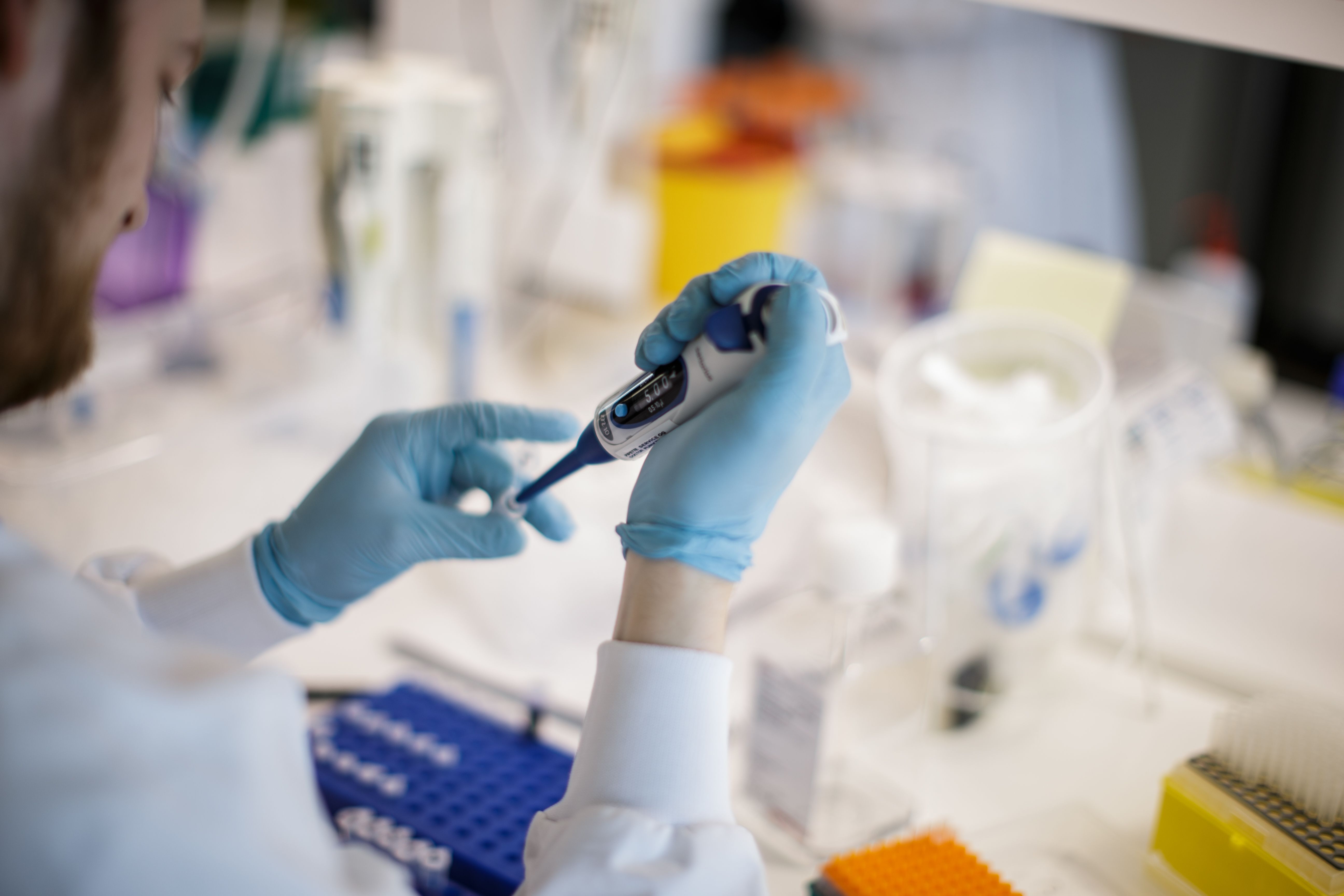Oxford vaccine veteran lays out coronavirus immunisation plans
Sign up now: Get ST's newsletters delivered to your inbox

The vaccine trial aims to administer the shot to 500 volunteers by mid-May.
PHOTO: AFP
Follow topic:
MELBOURNE (BLOOMBERG) - A coronavirus vaccine trial by the University of Oxford aims to have administered the shot to 500 volunteers by mid-May, Prof Sarah Gilbert, a professor of vaccinology at the university, told the Lancet.
Adults aged 18 to 55 years are being recruited initially in the early- and mid-stage randomised, controlled trial. It will be later extended to older people before an expected phase three expansion involving 5,000 volunteers, Prof Gilbert told the medical journal.
"The best-case scenario is that by the autumn of 2020, we have an efficacy result from phase three and the ability to manufacture large amounts of the vaccine, but these best-case time frames are highly ambitious and subject to change," she was quoted as saying.
Prof Gilbert, whose research on vaccines began at the University of Oxford in 1994, was awarded a £2.2 million (S$3.9 million) grant from Britain's National Institute for Health Research and UK Research and Innovation in March to scale up her team's efforts to move into Covid-19 vaccine research.
Her group's experimental immunisation is one of the first to enter clinical trials. The World Health Organisation counts 70 vaccine candidates in development, with three others being tested in humans. They are from CanSino Biological Inc/Beijing Institute of Biotechnology, Inovio Pharmaceuticals Inc, and Moderna Inc/National Institute of Allergy and Infectious Diseases.
Prof Gilbert's phase one and two study aims to split 510 participants into five groups who will be observed for about 6 months with the option for a follow-up visit about a year after entering the trial. One group will receive a second intramuscular shot of the vaccine four weeks after the initial immunisation.
The research aims to determine the efficacy, safety and immunogenicity - the ability to provoke an immune response - of the candidate vaccine, named ChAdOx1 nCoV-19. A vaccine against meningococcal disease will be given to participants randomly allocated to receive a placebo for control purposes.
Overseas Partners?
Some of the clinical research may need to be undertaken outside Britain if the epidemic there subsides to the point where efficacy can't be reliably determined.
"Our ability to determine vaccine efficacy will be affected by the amount of virus transmission in the local population over the summer, and we are also beginning to think about initiating trials with partners in other countries to increase our ability to determine vaccine efficacy," Prof Gilbert told the Lancet.
ChAdOx1 nCoV-19 is a so-called recombinant viral vector vaccine made from a harmless virus - an adenovirus that has been altered to produce the surface spike protein of the pandemic-causing Sars-CoV-2 virus.
The vaccine acts by priming the immune system to recognise and attack the coronavirus. The vaccine uses the same technique as a vaccine Prof Gilbert's team previously developed for the related Mers coronavirus, which showed promise in animal and early-stage human testing.
The WHO is creating a forum for everyone developing Covid-19 vaccines to share their plans and initial findings, according to Prof Gilbert.
"It is essential that we all measure immunological responses to the various vaccines in the same way, to ensure comparability and generalisability of our collective findings," she said.
"Work is continuing at a very fast pace, and I am in no doubt that we will see an unprecedented spirit of collaboration and cooperation, convened by WHO, as we move towards a shared global goal of Covid-19 prevention through vaccination."

